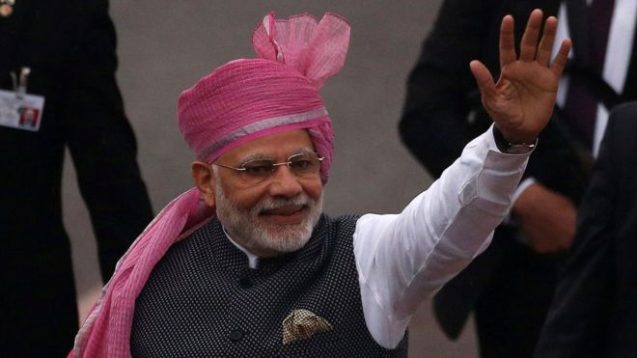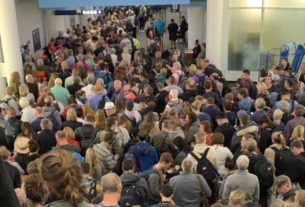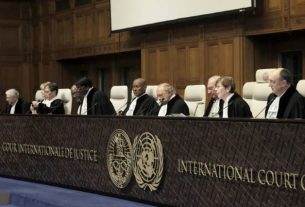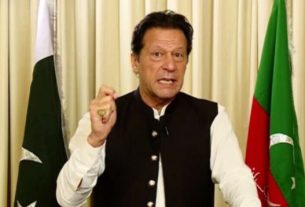NEW DELHI: In India’s remote northeastern state of Manipur, violence that erupted in May has created a deep ethnic divide between two communities and become a political flashpoint between Prime Minister Narendra Modi and opposition parties.
Three months after mobs rampaged through towns and villages, tensions run high between the Meiteis, who are predominantly Hindu and the Kukis and other tribes, who are mostly Christian. Thousands of security forces patrol the hilly state that lies on the border of Myanmar.
The toll of the conflict so far: about 140 people dead and hundreds of homes torched. An estimated 60,000 people who were displaced still live in refugee camps in the state of 3.2 million.
Among those who fled their home were the parents and other family of Hoihnu Hauzel, who lives in Gurugram near New Delhi. She told VOA her family home was attacked by a mob in the capital Imphal.
“They came pelted stones, burst cylinders, it was like they were out to get us. There were babies, my 2-year-old niece, my neighbor’s daughters, elderly people, they were really driven out,” said Hauzel, who belongs to the Kuki community.
There have been victims of violence on all sides. Now the two communities are geographically divided along ethnic lines — Kukis and other tribes live in the hills, and the valley is inhabited by the Meiteis.
Outside villages, young men hunker down in bunkers to guard their people and control their territories.
Fault lines ‘out of control’
Insurgencies and tribal rivalries have troubled Manipur for decades, but the ethnic divide this time runs deep. Analysts question why Prime Minister Narendra Modi’s Hindu nationalist Bharatiya Janata Party government, which controls both the federal government and the Manipur administration, has failed to stem the conflict.
“These fault lines have always existed, but they were allowed to go out of control,” according to Neerja Chowdhury, author and political analyst. “And the fact that the government of the state and the Centre cannot get a grip on the situation three months on is a very worrying phenomenon.”
The trigger for the conflict roiling the state was a ruling handed down by the Manipur high court in March that would potentially give the Meiteis more access to land and jobs reserved for Kukis and other tribes, who fear that the action could adversely affect them.
The court order set off protests and the violence that raged in early May — the scars left behind by rampaging mobs run deep. “We have had historical feuds with different communities, but it was not with so much of vehement and aggravated hatred like this,” pointed out Hauzel. “The manner in which the attacks were carried out, it is so hurtful, this is what is going to stay in the minds of people.”
The Supreme Court, while hearing a case on violence against women in the state, said this week that there had been a “complete breakdown” of law and order and constitutional machinery in Manipur. “There is a great need for a healing touch in the state,” according to Chief Justice D.Y. Chandrachud.
A 21-member delegation from opposition parties that visited Manipur on the weekend said in a memorandum submitted to the state governor that “there is anger and a sense of alienation amongst all communities, which has to be addressed without delay.”
Video draws attention to violence
While the remote state rarely grabs national headlines, the spotlight turned on Manipur after a video of two women being paraded naked went viral two weeks ago. One of the women was allegedly gang raped, according to a police complaint filed about the incident. It was one of several incidents of violence reported against women as mobs rampaged the state amid the ethnic rivalry.
It prompted Modi to promise tough action. “What happened to the daughters of Manipur can never be forgiven,” he said speaking outside parliament on July 20.
That did not satisfy opposition parties — the main opposition Congress Party has moved a no confidence motion against the Modi government that will be debated next week starting Monday.
The motion is likely to be easily defeated as the BJP enjoys an overwhelming majority in parliament, but opposition leaders say the move could force Modi to speak on the conflict. There have been widespread questions on the prime minister’s public silence — while he addressed the sexual violence against women shown in the video, he has not spoken about the wider conflict.
“As head of government, people expected him to say something about it and if nothing else to appeal for peace,” according to analyst Chowdhury. “Now the government is stirring itself and the first thing that will have to be done is to fix accountability.”
The government has said it is opening peace talks between the two communities and ensuring security. But as the state remains on edge, it may not be easy to bridge the ethnic divide.
“There is disappointment in the state that the government did not come early to wave a green flag between the two communities,” according to Hauzel. “It is going to take many, many years to heal the state and for that we have to ensure that there is justice delivered to begin with.”__VOA News





